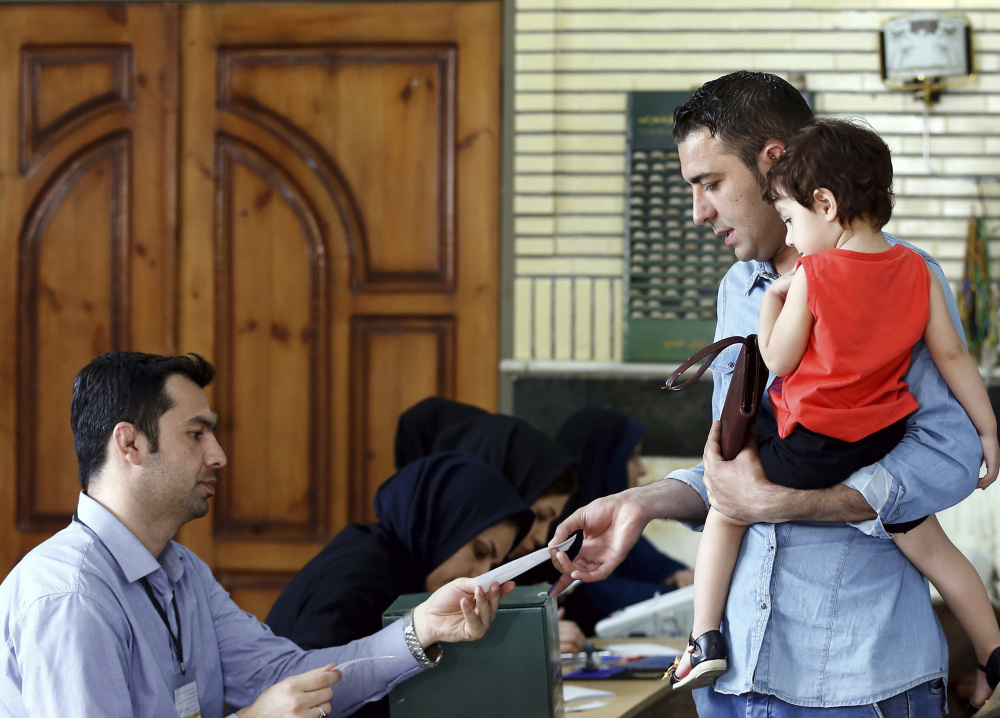TEHRAN, Iran — Iranian moderates and reformists who support last year’s landmark nuclear deal have won the largest number of seats in parliament following runoff elections, marking a shift away from hard-liners and boosting moderate President Hassan Rouhani as he looks to secure a second term in office.
The results released Saturday on state television failed to give the moderate-reformist camp an outright majority in the 290-seat chamber, however. They will now likely try to attract support from dozens of independent lawmakers whose political leanings vary depending on the issue at hand.
There were 68 seats being contested in runoff elections held Friday in 55 constituencies around the country. Residents in the capital, Tehran, did not take part in the second-round balloting because moderates won all 30 seats there outright in first-round voting in February.
The reformist and moderate list claimed 37 seats in Friday’s vote, giving them a total of 143 seats in the assembly – just two seats shy of 50 percent. They are followed by hard-liners, with 86 seats, and independents, with 61. Twenty-two hard-liners and nine independents won seats in the runoff.
Mohammad Reza Aref, head of the moderate-reformist bloc, welcomed the victory, saying “our priority is engagement with other factions rather than confrontation,” the semi-official ISNA news agency reported.
Tehran-based political analyst Saeed Leilaz called the results a “decisive victory” for the moderate-reformist bloc.
“It is now clear that they are more popular than hard-liners, even in the remote areas,” where their support was seen as lower than in major cities, Leilaz said.
A total of 17 women won seats in both rounds of elections, the largest number ever. At least 11 of them are moderate-reformist.
Deputy Interior Minister Hossein Ali Amiri told state TV that turnout in the runoff elections was 59 percent, compared with 62 percent in the original February elections. Some 17 million Iranians were eligible to vote.
Iran does not allow international election observers to monitor its polls, which are organized by the Interior Ministry.
Friday’s vote was marred by rare violence in the southern town of Mamasani, home to several armed tribes. Four people were wounded in a shooting that followed an argument between supporters of rival candidates running there.
Last year’s nuclear deal between Iran and world powers called for curbs designed to prevent Iran from pursuing nuclear weapons in exchange for the easing of painful economic sanctions.
Send questions/comments to the editors.



Success. Please wait for the page to reload. If the page does not reload within 5 seconds, please refresh the page.
Enter your email and password to access comments.
Hi, to comment on stories you must . This profile is in addition to your subscription and website login.
Already have a commenting profile? .
Invalid username/password.
Please check your email to confirm and complete your registration.
Only subscribers are eligible to post comments. Please subscribe or login first for digital access. Here’s why.
Use the form below to reset your password. When you've submitted your account email, we will send an email with a reset code.